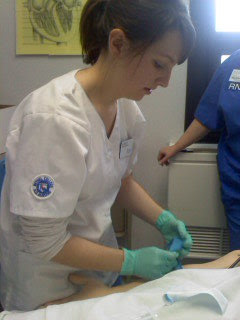Rightly-Placed Devotion

“The Communists convened a congress of all Christian bodies in our Parliament building. There were four thousand priests, pastors, and ministers of all denominations—and these men of God chose Joseph Stalin as honorary president of this congress. At the same time he was president of the World Movement of the Godless and a mass murderer of Christians. One after another bishops and pastors arose and declared that communism and Christianity are fundamentally the same and could coexist. One minister after another said words of praise toward communism and assured the new government of the loyalty of the Church. “My wife and I were present at this congress. Sabina told me, ‘Richard, stand up and wash away this shame from the face of Christ! They are spitting in His face.’ I said to her, ‘If I do so, you lose your husband.’ She replied, ‘ I don’t wish to have a coward as a husband. ’” - Richard Wurmbrand, Tortured for Christ Occasionally, one reads something that deeply impacts one’s pe...



